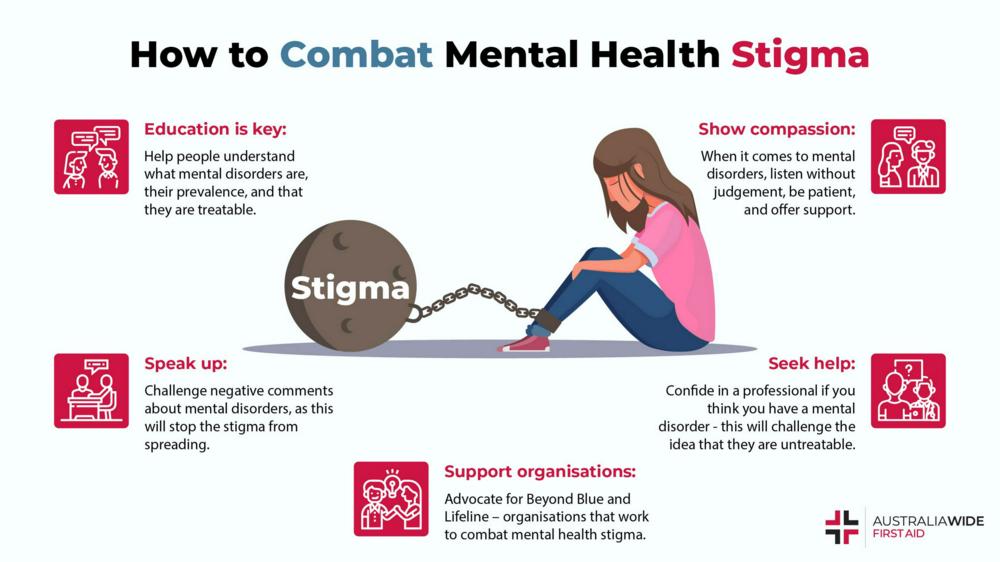The Impact Of Cost And Stigma On Mental Health Treatment Access

Table of Contents
The Crushing Weight of Cost
The financial burden of mental healthcare is a significant barrier to access for many. The high cost of treatment often prevents individuals from seeking the help they need, leading to worsening symptoms and potentially devastating consequences.
High Costs of Therapy and Medication
The escalating costs of therapy sessions (individual, group, family), psychiatric medication, and hospitalization are prohibitive for many. The average cost of a therapy session can range from $75 to $250 or more, depending on the therapist's experience, location, and type of therapy. Medication costs can also be substantial, particularly for individuals requiring multiple medications. Hospitalization for mental health crises can incur tens of thousands of dollars in expenses.
For those without adequate health insurance or with high deductibles, these costs are simply insurmountable. This financial barrier disproportionately affects low-income individuals and families, exacerbating existing inequalities in access to care.
- High cost of medication leading to non-compliance: Many individuals skip doses or stop taking their medication altogether due to the expense, leading to a relapse of symptoms and potentially more severe mental health challenges.
- Unaffordable therapy sessions forcing individuals to forgo treatment: The high cost of therapy forces many to delay or forgo treatment altogether, resulting in worsening mental health conditions and a reduced quality of life.
- Financial strain exacerbates mental health challenges: The stress and anxiety associated with the financial burden of mental healthcare can worsen existing mental health conditions, creating a vicious cycle of hardship.
Inadequate Insurance Coverage
Even with health insurance, access to mental healthcare can be severely limited due to inadequate coverage. Many insurance plans have limited mental health benefits, often covering fewer sessions than those for physical health concerns. This disparity reflects a systemic undervaluing of mental health compared to physical health.
Finding in-network providers can also be a significant challenge, further restricting access to care. Limited networks often leave individuals with few choices, and waiting lists for appointments can be lengthy.
- Limited number of sessions covered per year: Many insurance plans impose strict limits on the number of therapy sessions covered annually, forcing individuals to prematurely end treatment or bear significant out-of-pocket expenses.
- High co-pays and deductibles making treatment unaffordable: Even with insurance, high co-pays and deductibles can make treatment unaffordable for many, particularly those with low incomes.
- Network limitations restrict choice of providers: Limited provider networks restrict individuals' choices, potentially forcing them to settle for a therapist or psychiatrist who is not the best fit for their needs.
The Impact of Cost on Treatment Outcomes
Financial barriers to mental healthcare have a profound impact on treatment outcomes. Delayed or incomplete treatment due to cost leads to worsening symptoms, increased risk of relapse, and higher rates of hospitalization. The inability to afford necessary medication or therapy can have devastating consequences.
- Increased risk of suicide attempts among those unable to access care: Financial barriers to mental healthcare are associated with an increased risk of suicide attempts and self-harm behaviors.
- Higher rates of chronic mental illness due to delayed treatment: Delayed or inadequate treatment can lead to the chronification of mental health conditions, making them more difficult to manage and treat in the long term.
- Reduced workforce participation due to untreated mental health conditions: Untreated mental health conditions can significantly impact an individual's ability to work, leading to lost productivity and economic hardship.
The Persisting Power of Stigma
Beyond the financial barriers, the persistent stigma surrounding mental illness significantly impacts access to treatment. Negative societal attitudes and misconceptions create a climate of fear, shame, and discrimination, preventing many from seeking help.
Societal Attitudes and Discrimination
Negative societal attitudes and misconceptions about mental illness are pervasive. Individuals often fear judgment, discrimination, and social isolation if they disclose their mental health condition. Stigmatizing language used in the media and everyday conversations further reinforces these negative perceptions.
- Fear of being labeled "crazy" or "weak": The fear of negative judgment and social stigma prevents many from seeking help.
- Reluctance to disclose mental health conditions to employers or family: Fear of discrimination in the workplace or strained relationships with family members can deter individuals from seeking professional help.
- Social isolation and loneliness exacerbating mental health problems: Stigma can lead to social isolation and loneliness, which can worsen existing mental health challenges.
The Impact of Stigma on Help-Seeking Behavior
Stigma prevents many individuals from acknowledging their mental health needs, delaying help-seeking and leading to more severe symptoms. Shame and embarrassment associated with seeking professional help are significant barriers to care.
- Delay in seeking treatment leading to worsening symptoms and complications: The longer an individual delays seeking treatment, the more severe their symptoms become, making treatment more challenging and potentially less effective.
- Increased reluctance to engage in self-care activities: Stigma can lead to a reluctance to engage in self-care activities, such as exercise, healthy eating, and relaxation techniques, which are crucial for managing mental health.
- Higher rates of untreated mental illness in stigmatized communities: Stigma disproportionately affects marginalized communities, leading to higher rates of untreated mental illness.
Overcoming Stigma Through Education and Advocacy
Overcoming the stigma surrounding mental illness requires a multifaceted approach that combines education, advocacy, and open conversations. Raising awareness and challenging negative stereotypes are crucial steps in creating a more supportive and inclusive society.
- Promoting mental health literacy through educational programs: Educating the public about mental illness can help reduce misconceptions and foster greater understanding and empathy.
- Sharing personal stories to destigmatize mental illness: Openly sharing personal experiences with mental illness can help break down barriers and encourage others to seek help.
- Advocating for policy changes to improve access to care: Advocating for policies that improve access to affordable and quality mental healthcare is crucial in addressing the systemic issues that contribute to stigma and barriers to care.
Conclusion
The combined impact of cost and stigma creates significant barriers to accessing mental health treatment. Addressing these challenges requires a multi-pronged approach: increased insurance coverage for mental healthcare, affordable treatment options, and sustained efforts to reduce stigma through education and advocacy. By prioritizing access to affordable and accessible mental healthcare, we can improve the lives of millions and foster a more supportive and inclusive society. Let's work together to break down the barriers to mental health treatment access and create a future where everyone can receive the care they deserve. Let's fight the stigma and make mental healthcare accessible to all.

Featured Posts
-
 Fortnite Update 34 40 Servers Offline For Scheduled Maintenance
May 02, 2025
Fortnite Update 34 40 Servers Offline For Scheduled Maintenance
May 02, 2025 -
 The Smart Ring Test Proving Faithfulness
May 02, 2025
The Smart Ring Test Proving Faithfulness
May 02, 2025 -
 Fortnite Shop Update Whats Got Fans Angry
May 02, 2025
Fortnite Shop Update Whats Got Fans Angry
May 02, 2025 -
 Tuerkiye Endonezya Ortaklik Anlasmalari Boelgesel Ve Kueresel Etkileri
May 02, 2025
Tuerkiye Endonezya Ortaklik Anlasmalari Boelgesel Ve Kueresel Etkileri
May 02, 2025 -
 England Vs France Six Nations Dalys Late Score Seals Victory
May 02, 2025
England Vs France Six Nations Dalys Late Score Seals Victory
May 02, 2025
Latest Posts
-
 The Influence Of Nigel Farage On Reform Uks Political Rise
May 03, 2025
The Influence Of Nigel Farage On Reform Uks Political Rise
May 03, 2025 -
 La Nouvelle Loi Sur Les Partis Algeriens Reactions Du Pt Ffs Rcd Et Jil Jadid
May 03, 2025
La Nouvelle Loi Sur Les Partis Algeriens Reactions Du Pt Ffs Rcd Et Jil Jadid
May 03, 2025 -
 Algerie Impact De La Reforme De La Loi Sur Les Partis Pt Ffs Rcd Jil Jadid
May 03, 2025
Algerie Impact De La Reforme De La Loi Sur Les Partis Pt Ffs Rcd Jil Jadid
May 03, 2025 -
 Nigel Farage And The Rising Influence Of Reform Uk
May 03, 2025
Nigel Farage And The Rising Influence Of Reform Uk
May 03, 2025 -
 Reforme Des Partis Politiques En Algerie Positions Du Pt Ffs Rcd Et Jil Jadid
May 03, 2025
Reforme Des Partis Politiques En Algerie Positions Du Pt Ffs Rcd Et Jil Jadid
May 03, 2025
